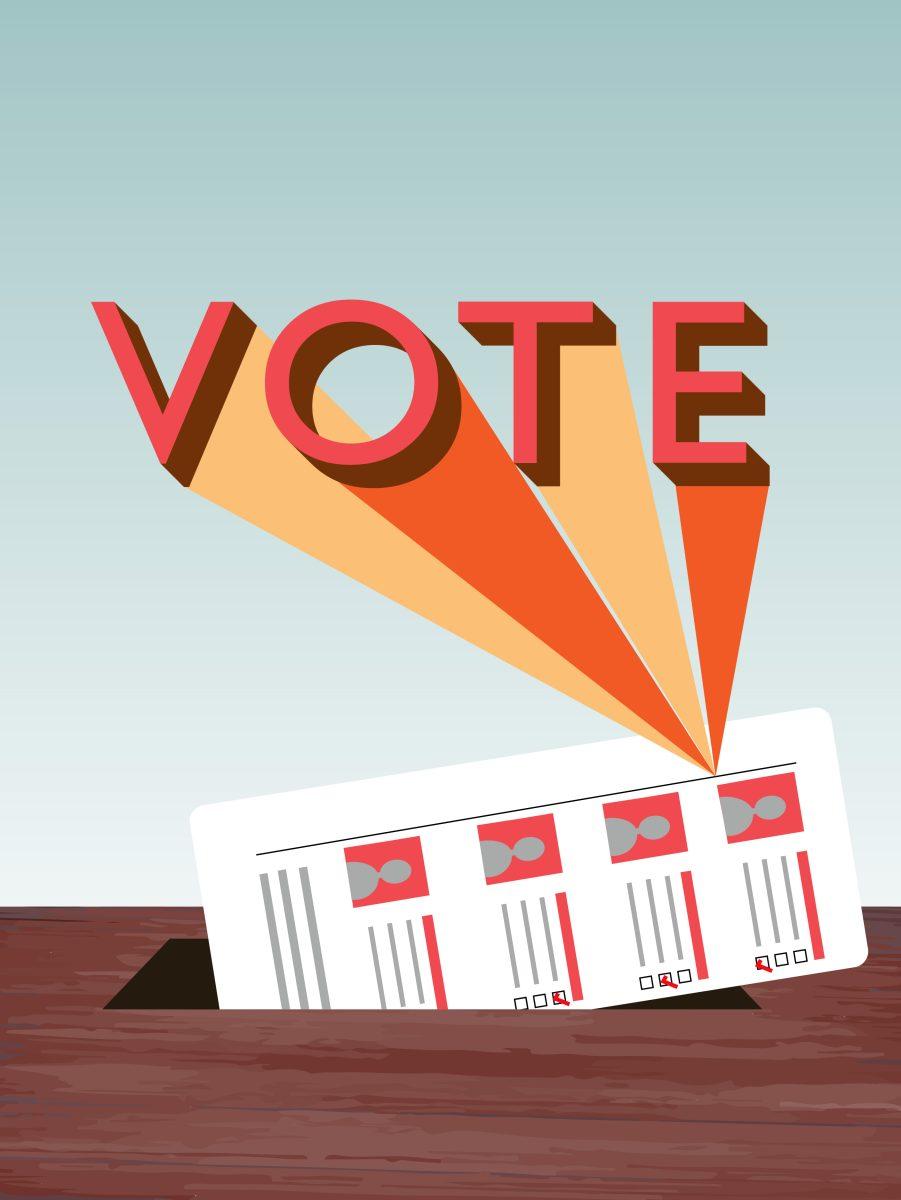
Graphic by Simone De Blanck
Vote graphic 2.0
Two weeks ago, NC State students took to the polls to elect their new student senators and vote on a proposed change to the NC State Student Body Constitution; or, at least, that’s what was supposed to happen. Instead, a minuscule number of the student population took part in the election. Of the approximately 34,000 students on campus, only 600 took part in the fall election. That is less than 2 percent of the population, and, considering that almost everyone on campus is of voting age, it is a frightening statistic that might very well translate to the midterm elections this November.
In the grand scheme of things, voting for student senators most likely isn’t going to drastically affect what happens at NC State day to day, but the process of voting is one of the most sacred responsibilities that individuals can have as a member of a community. While voting in an election for college senators might not necessarily be a big deal for students, it is extremely important and a good habit. Since voter registration for the fall election in North Carolina ends this Friday, there is no better time than now to start developing this habit.
Voting is important because it allows a citizen to make their voice heard. It expresses one’s opinion about a candidate or a policy in a concrete way. Taking the opportunity to vote is truly one of the only ways to see policies enacted that an individual agrees with, because the incumbent either has enough support to remain in office, or someone who isn’t well liked is voted out by their constituents.
Over the past two years, much has been made of the “blue wave” that Democrats should be driving for in this November’s midterm elections. However, the left-leaning voting block that encompasses college-aged students is notorious for poor voter turnout. Young voters have massive potential to swing an election when they come out to vote, and NC State should help students build this habit to help realize that potential.
There are steps that NC State could take to increase student election participation that would hopefully establish good voting habits. One of the first methods that is commonly utilized in other countries is incentivized voting. Some countries impose fines on non-voters to encourage citizens to vote, but NC State could offer a tastier option.
Lines consistently fill up Talley Market where Howling Cow ice cream is sold and offering coupons or free scoops after voting would be sure to encourage voting. This is made much easier by the fact that Talley itself will be an early voting location in the fall. When you feel elated about something, your body releases dopamine, and rewarding a student for voting would result in them equating voting with a pleasurable experience.
Another option for NC State is to increase awareness and education about the elections. Personally, I didn’t know anything about the fall Senate elections or how to vote, and for those reasons I was unable to vote. If there was more information out there about these and the midterms, it would allow students to plan on voting with a purpose and make it better worth their time.
Voting should be valued across the board, whether that means voting in a college, local, state or federal election. However, actions can be made to increase that turnout in NC State elections in a way that solidifies a student’s desire to vote in an election that carries more weight to it.